A Stalled American Dream
A depressing and unhealthy few days on the road
(I spent the last week driving around America. This is the first essay from that trip.)
I set off last Wednesday, to spend three weeks driving around the US talking to people about the American Dream, with high expectations drizzled in nostalgia, since it was the copy of a project I’d done exactly nine years before.
After close to four years crisscrossing the world, by jet and foot, I was looking forward to a road trip around the US, which I hoped would be a refreshing change and would give me a sense of where the mood of my country currently was, especially since there is an election in three months, and if there’s one thing I’ve learned from my prior political reporting, it’s that you can’t trust the media (Twitter) to tell you much of anything, other than the fantasies of a sequestered political class, and if you want to know how voters see things, you need to go out and talk to as many people as possible in as many places as possible, especially those places successful people with good jobs have been fleeing for the last fifty years.
That style of reporting, something I did extensively for eight years1, came to be lampooned, so it could be dismissed, as talking to “Trump voters in Rust Belt diners” although the far more accurate description would be “non-voters in McDonald’s,” since the majority of Americans who could vote don’t vote, and diners are too fancy, and consequently racially segregated, for my liking, at least compared to the “egalitarianism by shared necessity” of the golden arches.
So in that spirit, my first stop was a Scranton McDonald’s, where I found nobody who wanted to talk, since the few who came inside were grabbing and going. Similarly, the downtown nearing dinner time was empty except for professionals dashing from cubicles to cars, and the destitute hiding in nooks from a lingering heat, emerging only to ask for money, either via long lies or by pleas to my empathy.
My motel, a run-down squalid place2 that at forty-five a night was still extortionate, was at least social, with the buzz of a long term residency, which is what it was for everyone there but me, with people out smoking and drinking in the only fresh air and view they had.
Kevin, sitting on his milk crate “lawn chair” chain smoking Criss Cross cigars, was the most talkative, and so not surprisingly the most opinionated, and certainly not a non-voter, at least in attitude. He was a life-long union Democrat, who snapped back before I could finish asking “What do you think the American Dream is,” with “It doesn’t exist these days, it was ruined by Reagan in the eighties," which pivoted into a chronicle of his last fifty years of ups, and mostly downs, that began with “I got a degree in computer science from University of Scranton” and ended with “I don’t have hope. I understand why there’s so many druggies out there,” peppered with detours into local gossip about who’s a pervert (the guys drinking in the beat up Accord watching us), who’s hard working (his smoking friends on other side of motel), who’s a incompetent dumb thief (his brother), and so on, with most of his wrath directed at the CIC (Community Intervention Center), Trump, and the Sackler family.
The next morning, after a night of heavy rain, loud music, and unexplained loud blasts, Kevin was where I’d left him, joined by John and Dewey3 who completed America’s political triarchy of “Trump’s my man” (John), “Trump’s an ignorant asshole” (Kevin), and “Neither. Nothing’s going to change. Nothing. They don’t care about us people” (Dewey).
Dewey and John were passing the time, waiting for their boss to pick them up, but it was raining, which meant they’d probably miss out on the hundred and fifty cash they got for a day’s work painting, and given rent in the “shit-hole was $1,500”, that really sucked.
Both were less talkative than Kevin, although not out of impoliteness. John was a tad shy, and a little confused why someone as educated as me wanted his views. He was from McDowell County Virginia, and had come here for work, and to get a “change of location, and change of situation” since that was the only way to stop the heroin. He’d been on it a little, way back when he was a kid, but “he came out of it, with no rehab, but by willpower,” something all his high school friends and family didn’t seem to have, which made him want to stay here because if he’d went back he’d “judge them harder than God for still putting needles in their arms.”
John thought the American Dream was “going downhill,” while Dewey burst out laughing at the question, followed by a loud “Shiiiiiiiiiiiiiiiiiit. That’s long ago dead,” and then a soft-spoken condemnation of people on welfare, including some of the other residents, who “walk around all day doing nothing, drinking liquor, shooting smack, getting seven hundred a week, while I work my ass off and get less than them. That ain’t right and I wouldn’t vote for no politician who supports that bullshit, and they all support that bullshit.”
I tried to spend the remaining morning walking around Scranton talking to strangers, but the rain, heat, and emptiness, made for a desolate beginning to my second day, so I drove to Wheeling (WV), hoping for something a little less despondent and a little more buoyant, but that didn’t happen, and instead I found I’d stepped further into the gloom.
I’d remembered Wheeling as a forlorn town, but a busy, active, and alive one, yet there was none of that this time, even though it was a Friday night. At least not downtown, which had the energy of a patient on life support. There was still a heartbeat, but it felt feeble and artificial.



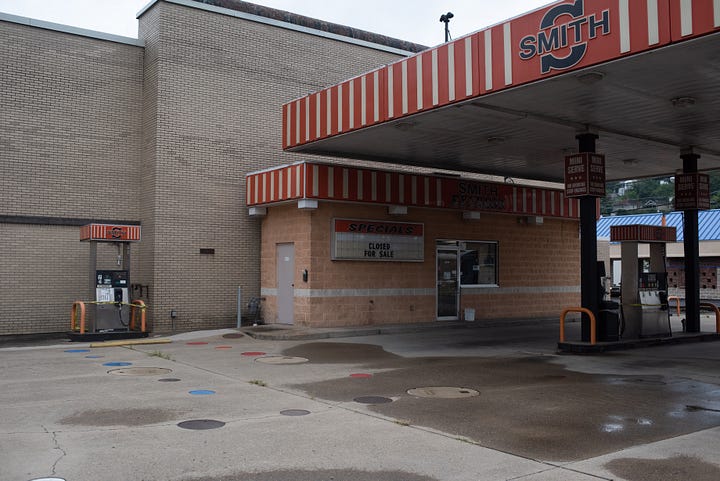
Mike at the Carin pub was surprised I was surprised it was so empty, bemused by my naivety. “There used to be fifteen bars in the area, one on every corner, but those all died after the steel mills left and we are hanging on only because our regulars are too stubborn to go anywhere else.”
He was also firmly in Dewey’s no point voting camp (“I’d rather vote for Mickey Mouse than any of these corrupt idiots”), and when I asked him what he thought about the American Dream he looked quizzically at me, “Is that like a show on TV?” and when I repeated, “no, you know, THE American Dream” he also burst out laughing, followed by “Do I believe in it? Hell no, that died forty years ago.”
At Mikes suggestion (“only people you going to find around here are too messed up to talk”), I left downtown and went to a large restaurant outside of town, which was busy because it wasn’t dark and dank, and because of a fifty-year high school reunion, which made for a lot of conversations, but not about the American Dream or politics, because neither was on anyone’s mind, at least not explicitly, and I try not to be an impolite jerk.
The next morning I was still firmly committed to three weeks of driving around America talking to people thing, but beginning to waver. I still hadn’t walked, the landscape of the last few days was too sparse, too pedestrian fierce, and too hot for that and it was beginning to grate on me. I need to walk, both for my health, and because that’s how I prefer to meet people, in a more organic way than stopping in a McDonald’s determined to get stories.
I’d had gotten some of those that morning, from a retired priest, a school teacher, and a young mother, none of whom cared about politics, at least not in this current world, and all who seemed unsure of what the American Dream was.
The next person I spoke to, Luther buying packs of cigarettes in a gas station across the river in Belmont (OH), was a gut punch to my spirit though,
Me: What’s the American Dream?
Luther: What American Dream anymore? I’m too old to dream anyways because I got lung cancer, so no sense in dreaming.
Me: Oh shit, I’m sorry. What stage is your cancer?
Luther. Don’t know, don’t want to know. The doctors said I got it, and to come back, but I’m not doing that. Chemo kills you.
Me: I’m sorry, but maybe….
Luther: Nope. I’m done and living one day at a time, doing my best. I got baptized on my sixty-first birthday, so I fixed myself for what’s coming.
The rest of the day, driving to Bristol (TN), hearing more stories of pain, apathy, and destitution, resting in blazing ugly strip malls empty of trees, cracked my desire to continue on.
While I was driving through some of America’s most majestic natural beauty, almost everything in it built by humans was unadorned ugliness. Pre-fab bland buildings that look like they were airlifted in and plopped down in plots of land bulldozed flat, with zero shade or attempt to integrate them into the surrounding nature.
It didn’t help that I was also feeling physically gross, unable to walk, and eating trash, since that’s what’s almost exclusively available on the road in the US, because that’s what most Americans eat — prepackaged globs of fat and sugar.
America’s diet, outside of a minority of successful neighborhoods, has gotten worse since my last American Dream trip, with everything now somehow bigger, sweeter, and fattier: Mass produced, highly processed gunk, that has as much connection to what the rest of the world considers food as pornography does to intimacy.
There is still a few remaining culinary bright spots amongst the franchised wasteland, with some vestiges of the communal and authentic still lingering in family run Mexican restaurants, but even they’ve become to feel formulaic, and given over to pushing the most calories, the most grease, the most cheese, and the most fat, because that’s what most people seemingly want.
America is not physically healthy, with the exception of small (and thankfully growing) number of fitness nuts (gym bros, Instagram models), many of which, who like born-agains surrounded by addicts, have embraced a siege mentality of extremes — no carbs, no fats, max protein, faux meats — another version of highly processed food pornography empty of authenticity.
Nine years ago I didn’t think what we built and what we ate mattered that much, a small problem dwarfed by the much bigger issues of heroin, suicides, joblessness, spiritual emptiness, but it does, because it can’t and isn’t divorced from them.
Wolfing down four donuts and a Kit Kat frappuccino from the Dunkin in the concrete plaza denuded of trees, or two heat-lamp egg and cheese biscuits from the Sheetz at the intersection of two eight lane roads, in your car on the way to work, is no way to live: Life boiled down to the most utilitarian goal of maximizing stuff and minimizing cost, with any of the shared communal-ism the rest of the world understands as essential to what a fulfilling life means long ago washed away by our dismal culture of stripping everything of the sublime.
It’s left the majority of Americans obese, flabby, and despondent. You can’t separate physical and mental health, which like the two weights of a Bolas, are connected, each alternatively pulling the other further in the same direction. Right now, in the US, that is spiraling further down into despair.
When I woke the next morning, only my third on what was planned to be a three-week road trip, I knew I was done. I’d heard enough to know I wasn’t going to learn anything new, certainly not about politics, which I am personally tired of hearing about anyways. Over the last few years I’ve become, like the majority of Americans I’ve spoken to, a non-voter, at least in spirit. While we might share a similar political apathy, we arrive at it from very different directions. Those I speak to from believing no politician has ever worked for them, me from believing the problems they’re immersed in are too large and intractable to address, at least in my lifetime.
In the nine years since the last American Dream trip, I’ve come to realize I don’t like America, not as a place to live. We have an ugly, selfish, winner-take-all culture — devoid of community, meaning, and the majestic — and almost all our policy is built around the notion that individual liberty, with the most stuff at the cheapest price, is the ultimate good.
I don’t believe that, and my last three years of trips to countries as different as Vietnam, France, Uganda, and Istanbul, has highlighted and strengthened my view that while the US certainly provides our citizens with the most opportunity, and the most stuff, we don’t provide them with the most fulfilling, beautiful, and elevating life
While I might be done with the US I’m not done with Americans, who have, like all humans, an enviable capacity to endure.
Caroline was sitting alone in the McDonald’s at six a.m., drinking a fountain cup of water, and playing on her phone. I didn’t know what to make of her, curious why she was there so early, but not wanting to make her uncomfortable I left her alone, until she joined me to vape outside, when she opened up.
She had moved to Bristol six months ago, after getting her “teeth knocked out through domestic violence” something she apologized to me about, since she claimed she couldn’t speak well, although I didn’t notice.
Originally from Grundy (VA), “a little coal mining town in the middle of nowhere”4, she’s now living in a homeless shelter, “which is a little rough” but safer than Grundy since after “trying to kill me, putting me in the hospital for three days, he (her abuser) was set free the same day they put in him jail. He made bail somehow, and they let him out, and he’s been on the run and they haven’t been able to find him since, so I’m here.” Her father, “a good man who worked in strip mining,” died in 2012, and her mother is “an addict out of my life.”
Me: So the question I ask everyone is, what’s the American Dream?
Caroline: Kinda just be happy, be free, and be able to live without worry honestly.
Me: Do you think it’s still available?
Caroline: Yeah, you just got to work for it.
Me: You’ve been through a lot, for you to believe in the American Dream. That’s pretty impressive.
Caroline: (laughing) I’m trying to. What else can you do?
Me: Some people don’t, and turn to drugs, which you haven’t. How?
Caroline: Been learning and seeing my whole life what drugs can do to you and cost you, and no.
Before leaving to drive to Chattanooga (TN), I asked if there was anything I could do for her, any place I could drive her, or anything I could buy her, and she said she was good, that she’d been dropped off by another shelter resident for an McDonald’s interview, and already had her breakfast, and they would pick her up when finished, which should be in another hour or so, whenever they get a free moment.
After talking to Caroline I realized my trip was done, and mapped my route back5. I wanted Caroline’s sanguine sweet indefatigability to be the final and lasting image from my trip, because while America might be an ugly unhealthy country, at least that hasn’t broken everyone spirit. At least there’s still an aspirational American Dream bubbling beneath the drab treeless strip malls.
Driving home, thinking about why I gave up so early, why I was so much more negative this time, I realized it had little to do with America, which hasn’t changed much in the last nine years, but with me.
That it hasn’t changed much, that it was all so familiar, is what I find so discouraging. That I could have copy and pasted any of the interviews from this time, into what I wrote before, and vice versa, is to me damning.
A decade ago I had hope that things were so bad that we couldn’t possibly keep ignoring the malaise, the emptiness, the ugliness, and we would move to right the ship. Instead we, including the policy class like me with the influence and platform to change things, have buried our heads deeper into the sand, and moved to make life in the US even more banal and isolating, because we can’t grasp that the problem isn’t about the economic, but about the spiritual, isn’t about building another basic housing complex, another road, another shopping mall, but about building more cohesive and meaningful communities.
Which isn’t easy, but unless that’s done, little will change towards the good, not in another year or another decade.
(Update: This line, “since the majority of Americans who could vote don’t vote” is wrong. I should have said, “since the largest voting block in the country is non-voters”, meaning, more people don’t vote than vote for either candidate. My apologies. I’ve written about this before, but it got lost in my haste.)
(Sorry to keep writing such negative pieces on the US. I promise I’ll write a more uplifting one soon, and had I made it to El Paso my next one might have been very different.)
Until next week!
My book, Dignity, is a result of that period, although I spent far more time talking to people about things well beyond politics.
John is the man on left and Dewey on the right of the cover photo
“Most we (Grundy) got is a Walmart that people treat like a tourist attraction because it’s the only three story one in the world. I mean it’s cool, but it’s nothing spectacular because it’s mainly two stories of parking.”
I did spend two more days on the road, heading to Montgomery (AL), before turning around, since I was so close and it’s a city I have a special fondness for. And it quietly has some of the best Korean food in American. Thanks to the Hyundai and Kia plants.


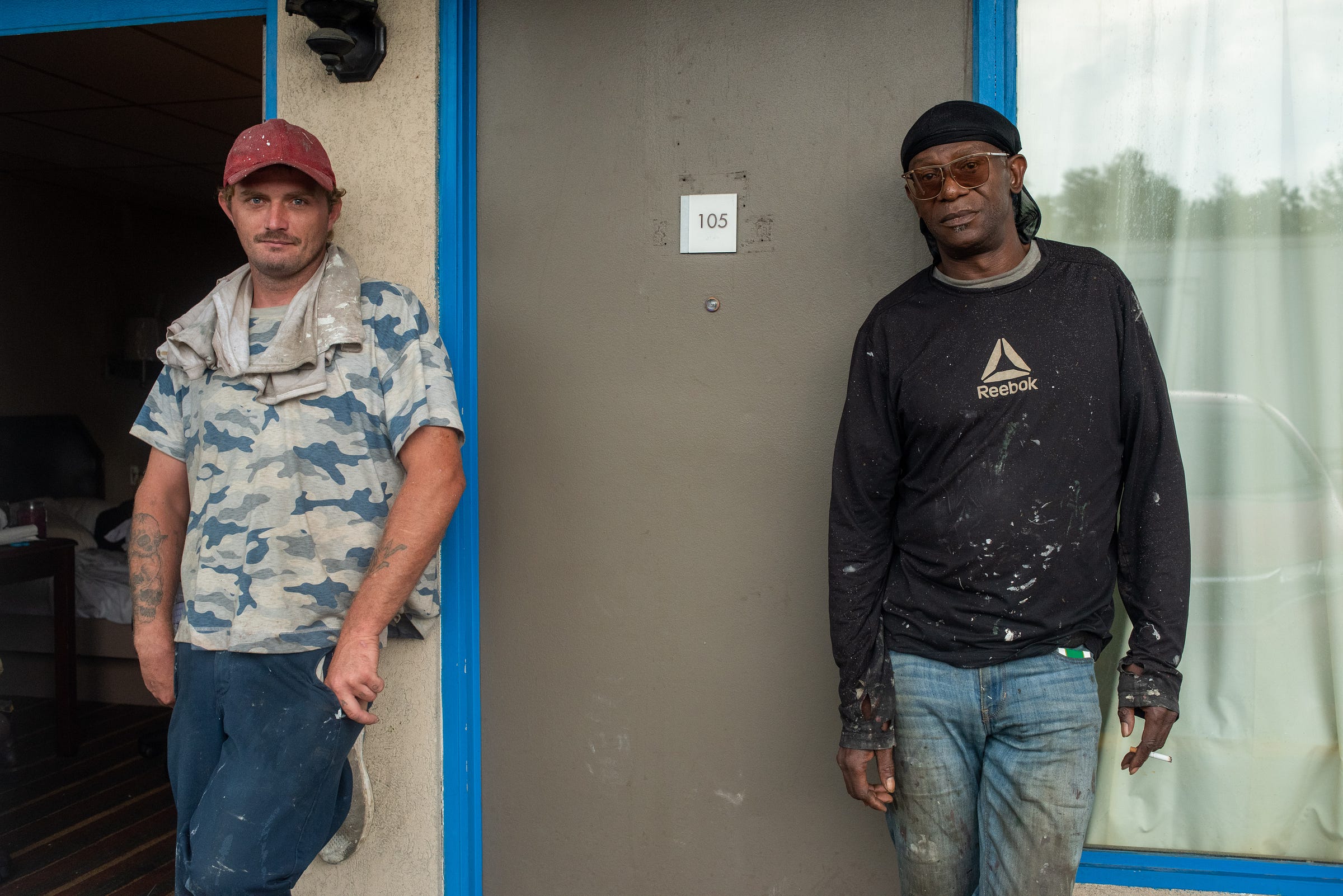
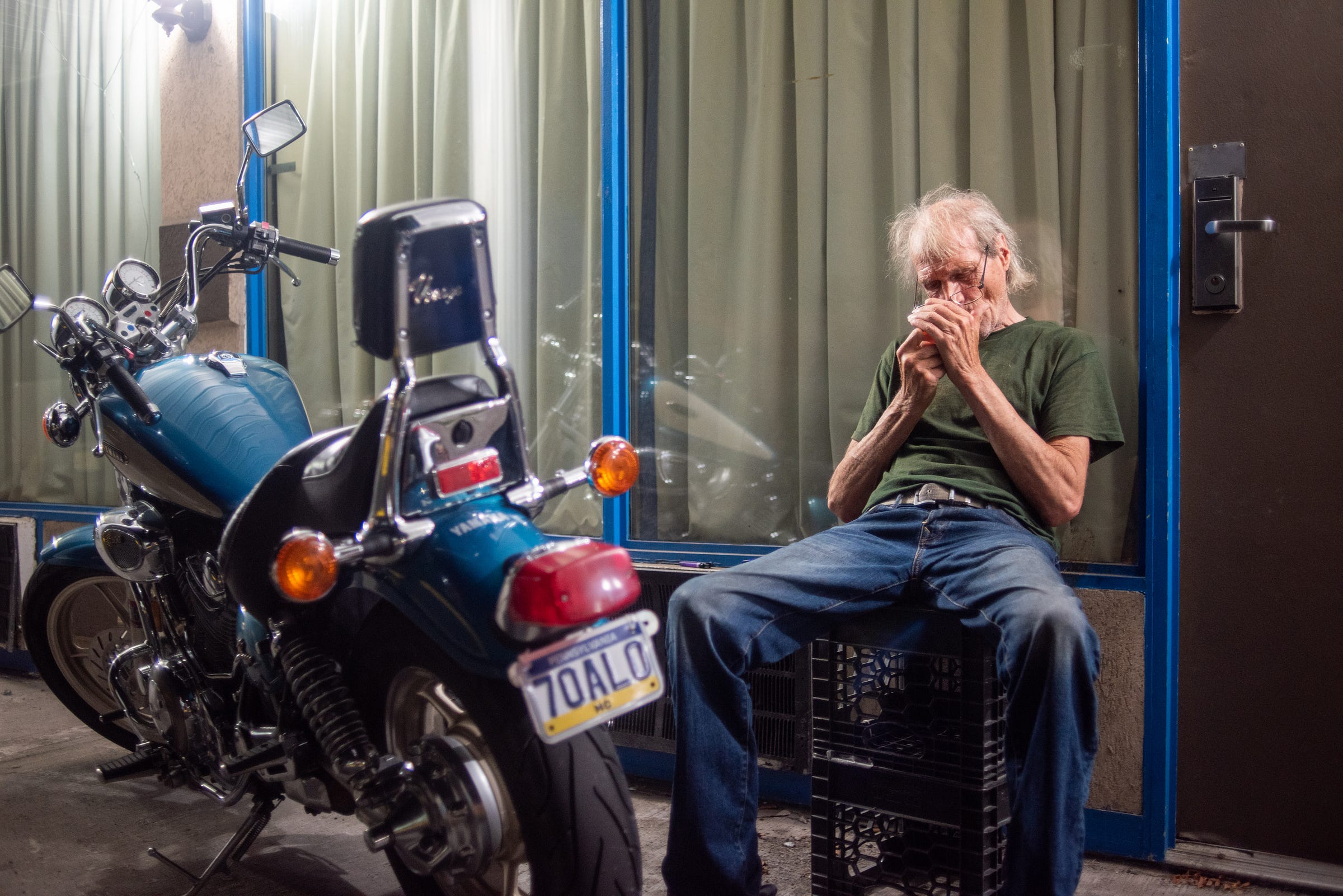
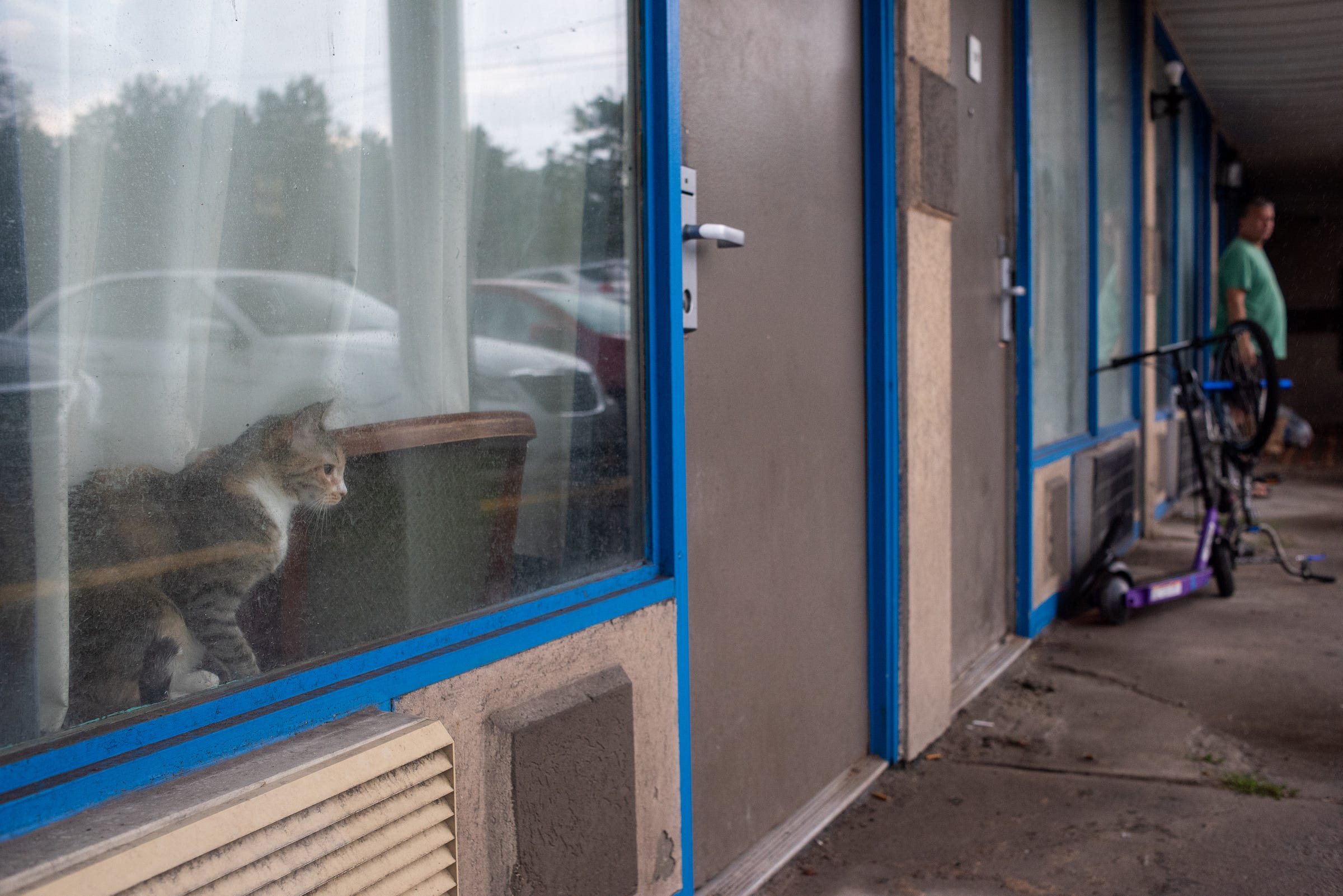

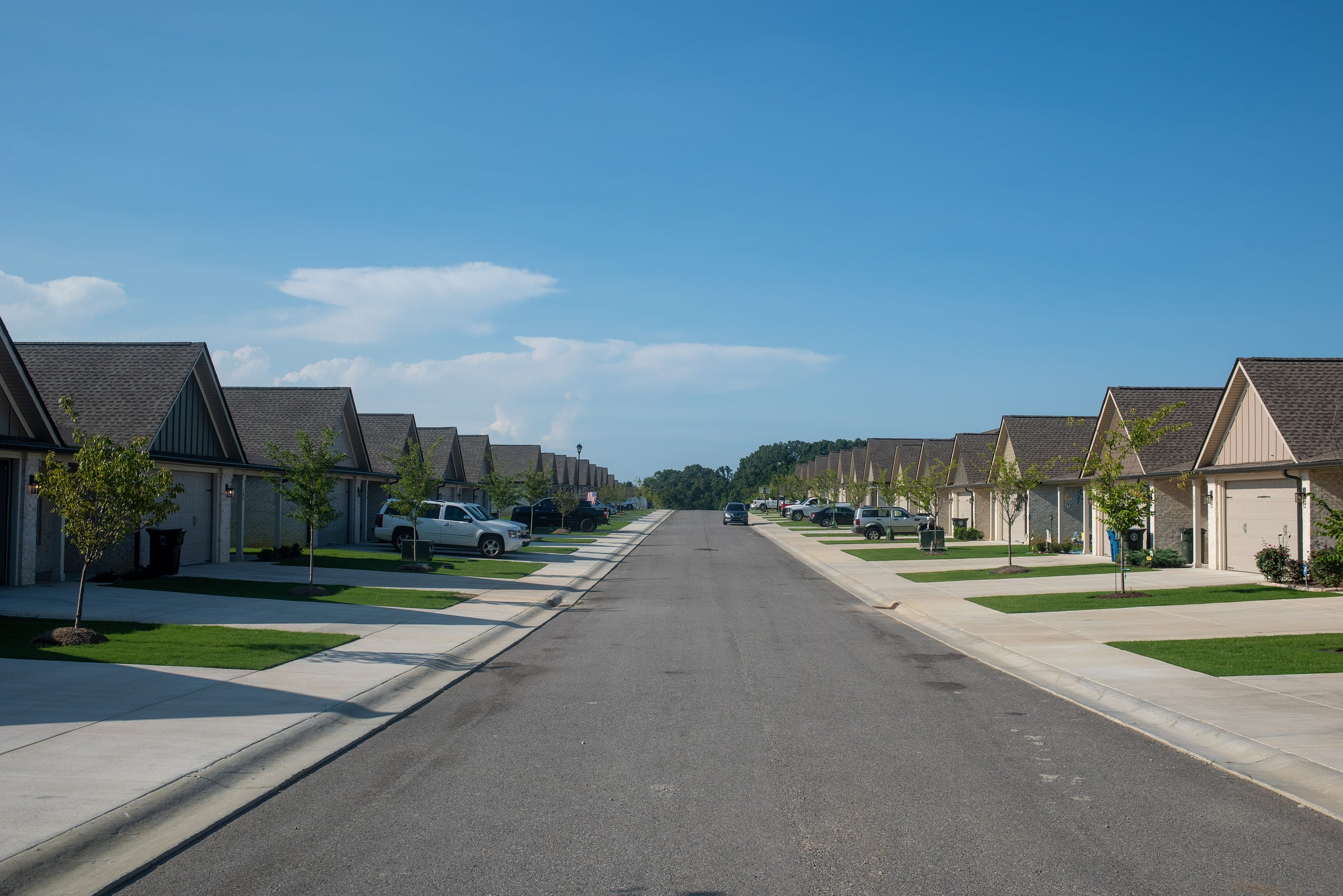
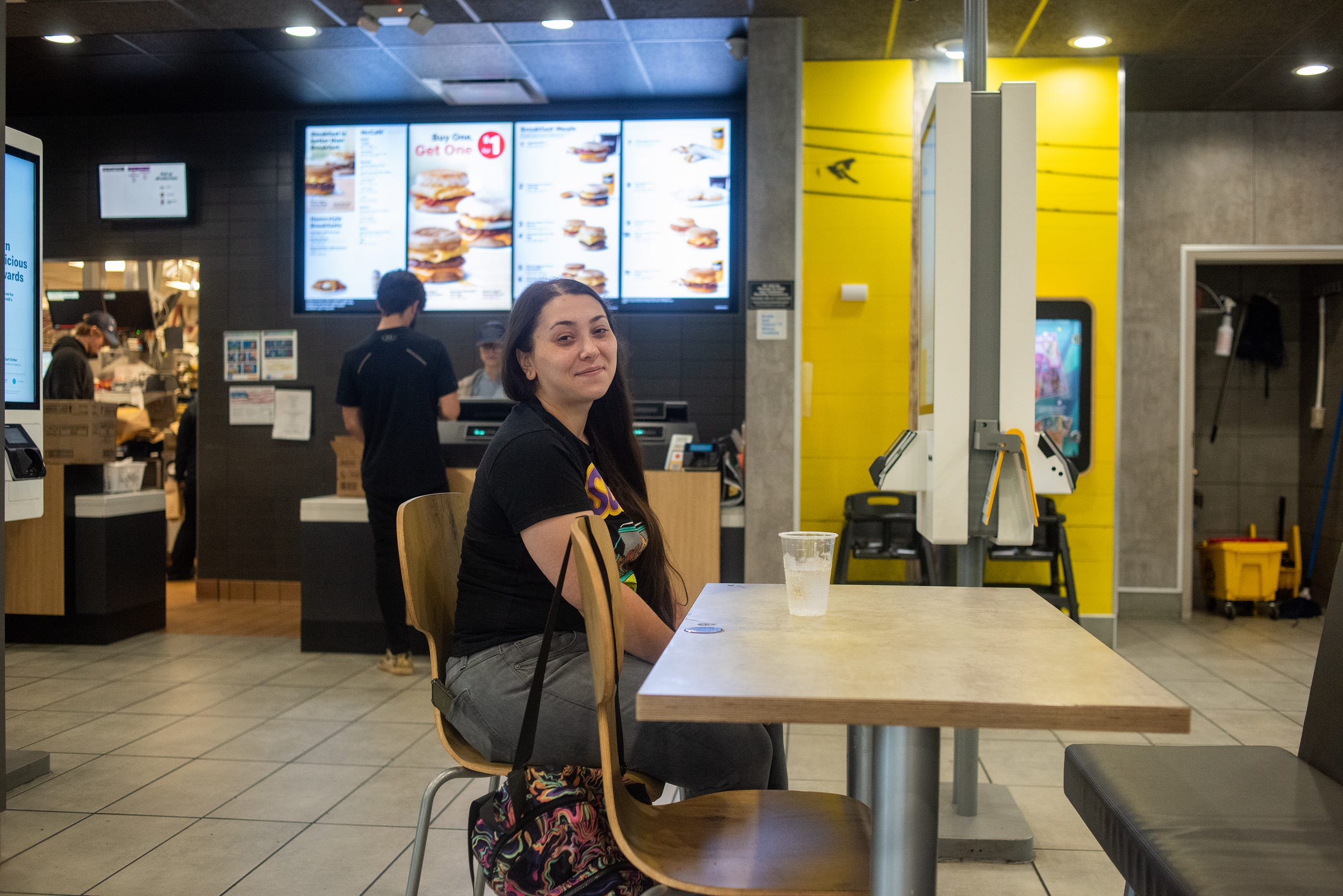
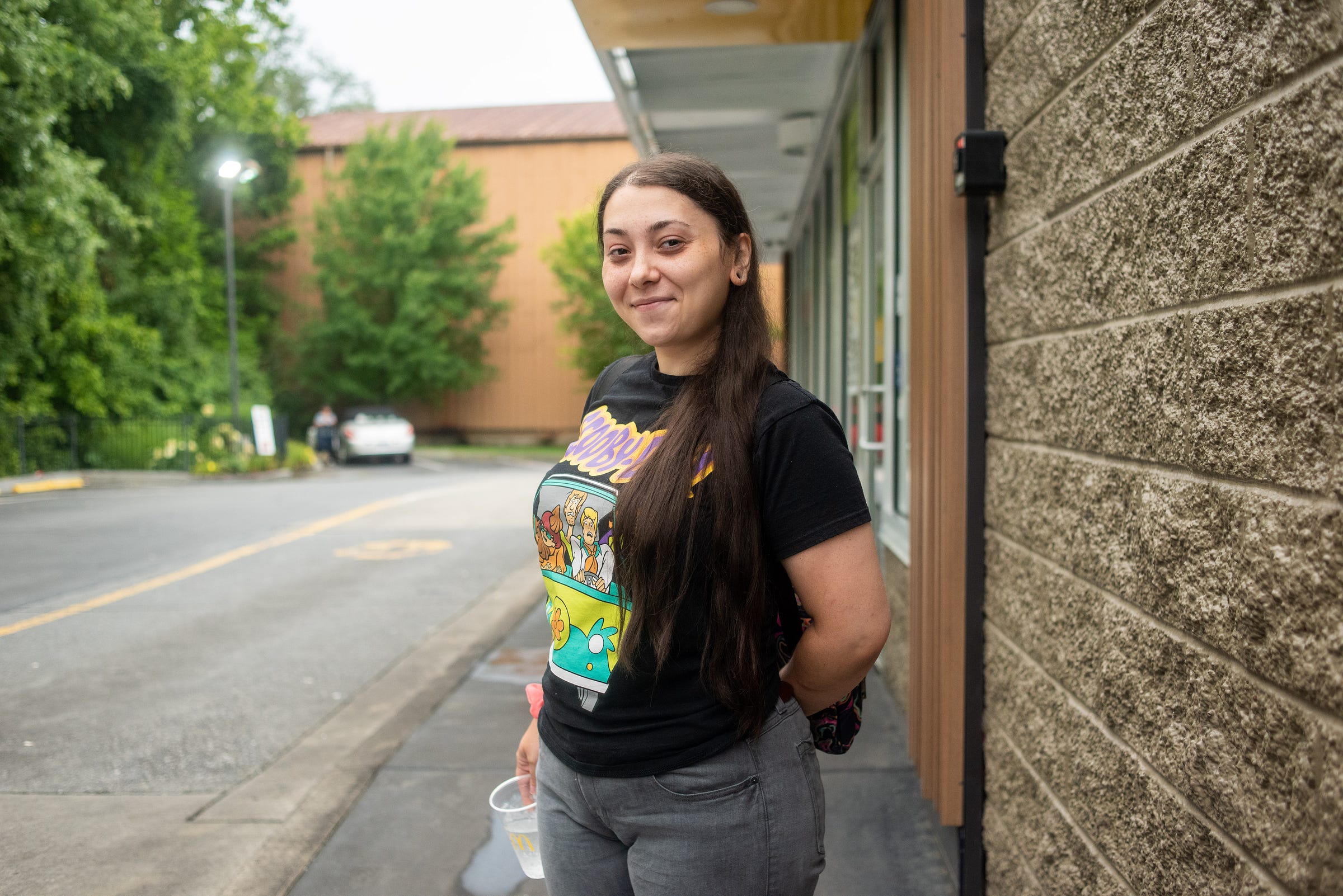
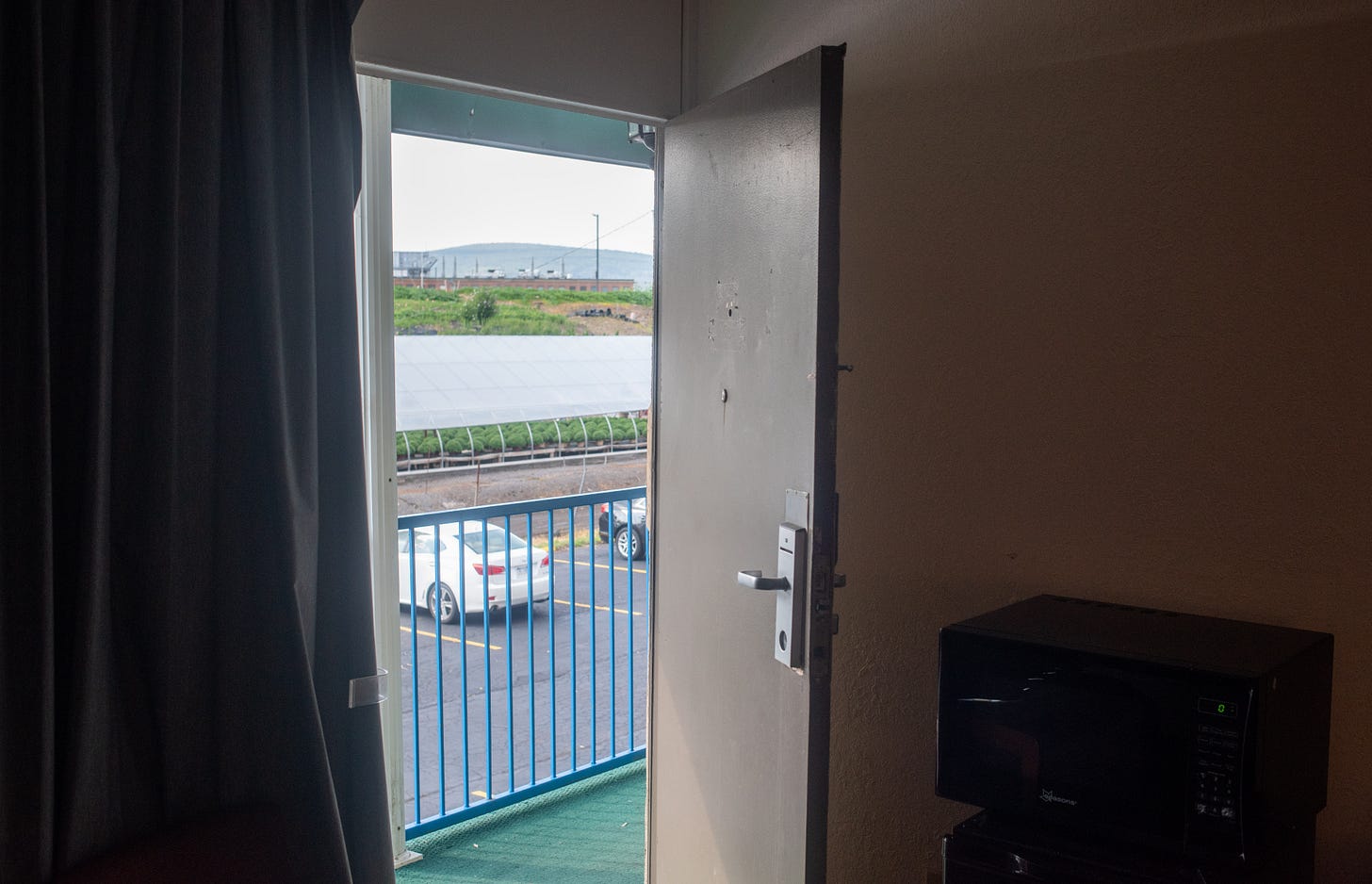
I've been working on articulating the difference between existing and flourishing as human beings. Existing just requires water, calories, and shelter. Flourishing requires other people to engage in our narrative (and by that I mean a lot more than just conversation, although conversation is an important starter.) If we want to flourish, we must do more than merely accept that other people are entitled to exist (this is the minimum required for individual liberty.) We must engage with others.
I’ve lived in Amsterdam for nine years, and when I go back to my hometown in northern California, I get a similar feeling to what you describe. There’s so much more homelessness and drug paraphernalia, and grocery store prices are insane. My European Dream feels so much more alive. Here my son goes to a fantastic public school. We own a little house in a nice neighbourhood. Our inexpensive health insurance covers everything from physiotherapy to prescriptions to the 10-day hospital stay I had a couple of years ago. My daughter just finished her first year at University of Amsterdam, and tuition is €2K a year. The whole premise of society here is just so different.